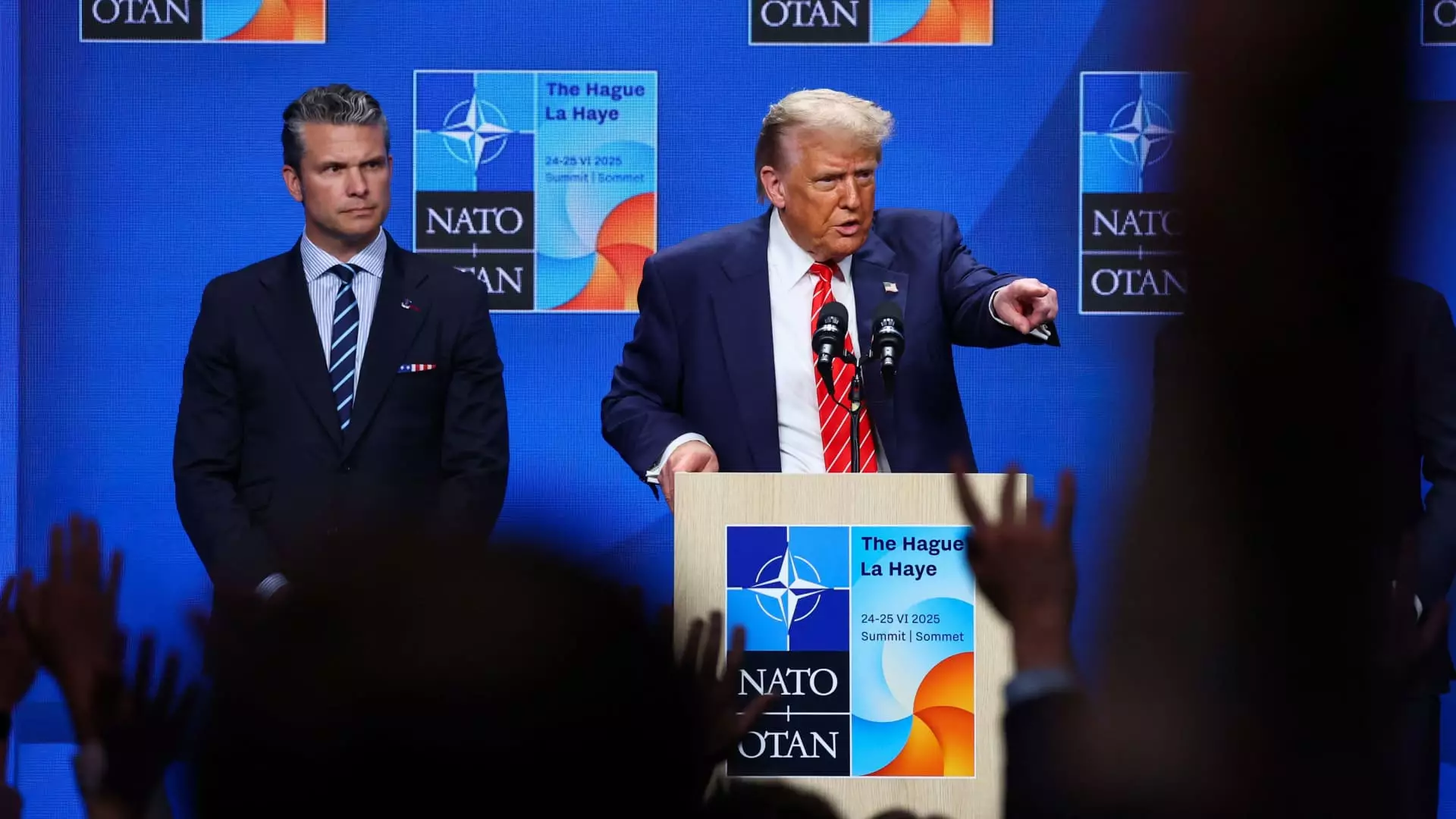In the world of politics, the line between fact and fiction often blurs, particularly when it comes to national security. President Donald Trump’s fervor in proclaiming that American airstrikes have entirely “obliterated” Iran’s nuclear capabilities raises significant concerns about the credibility of his administration’s assertions. As Trump boldly announced during a NATO summit that the Iranian nuclear site at Fordo had been “totally obliterated,” careful scrutiny reveals a far less dramatic reality. A preliminary U.S. intelligence assessment indicates that while significant damage was inflicted, Iran’s nuclear program was merely set back by a few months rather than dismantled entirely. This disconnect between reality and rhetoric represents not only a failure of the administration’s narrative but also serves to undermine public trust in governmental communications regarding critical defense matters.
The Dissonance of Intelligence and Politics
The juxtaposition of Trump’s claims with actual intelligence reports presents a worrying picture. Trump’s quick dismissal of an intelligence assessment he himself acknowledged reveals a fundamental flaw in his approach: governing through hyperbolic statements. He criticized the report’s imperfections, suggesting it was inconsequential because it was released shortly after the attacks. However, a deeper analysis suggests that the administration is less interested in factual accuracy and more focused on crafting a narrative that fuels nationalistic pride and political capital. The insistence that Iran’s nuclear capabilities have been obliterated not only inflates the administration’s sense of victory but also distracts from the complexities of international relations and the repercussions of military action.
The Risks of Political Hubris
The fallout from Trump’s rhetoric extends beyond mere misrepresentation; it poses real risks to American foreign policy and national security. By claiming an overwhelming victory through superficial actions, the administration overlooks the nuanced and strategic nature of international diplomacy. The assertion that Iran’s nuclear ambitions have been completely thwarted could lead to complacency—a dangerous mindset when dealing with volatile regimes. Diplomatic engagement, rather than militaristic bravado, should be the long-term strategy pursued by the U.S. in nonproliferation efforts, yet Trump’s administration seems trapped in a cycle of belligerence and dramatic claims.
Moreover, the backing from Defense Secretary Pete Hegseth and the staunch rebuke of the intelligence community’s findings encapsulate a troubling trend in the current political climate: attacking dissenting views or facts that counterbalance a favorable narrative. Hegseth’s remarks alleging that anyone questioning the operations is merely seeking to undermine the President demonstrates a disturbing tendency to discredit the fundamental checks and balances that ensure the integrity of military operations. This culture of antagonism towards credible intelligence only serves to reinforce a dangerously myopic worldview that prioritizes perceived strengths over thoughtful strategy.
The Role of Media and Public Perception
The media’s role in this narrative is equally critical. While responsible journalism aims to uncover the truth, sensationalizing political figures’ statements often muddies the waters. The coverage of Trump’s claims versus the reality of the intelligence assessments presents a prime example of a media landscape that favors dramatic headlines over nuanced analysis. This not only perpetuates misinformation but also shapes public perception in a way that favors unchecked executive power. The ambiguous nature of reports regarding military engagements provides fertile ground for misleading claims, which politicians can weaponize to bolster their positions while undermining accountability.
Furthermore, the backlash from the White House regarding the intelligence leak is reflective of an administration that views transparency as a threat rather than an asset. In a functioning democracy, the dissemination of accurate intelligence should be welcomed, not vilified. Such attitudes toward vital information contribute to an environment where deception can thrive unchecked, ultimately leading to reckless decision-making and potential international crises.
In essence, the conflation of rhetoric and reality surrounding the U.S. actions against Iran’s nuclear program highlights a severe detachment from the complexities of international relations and military engagement. President Trump’s claims of obliteration may serve a political purpose, but they do little to advance a constructive discourse on national security that acknowledges the intricate landscape of global politics. While the administration may relish in asserting military dominance, the broader implications of their narratives hold a mirror to the dangers of political hubris and the critical need for an informed and engaged public.

